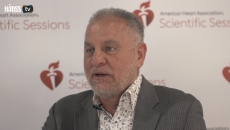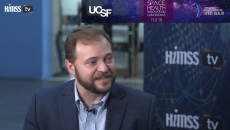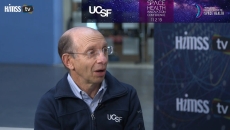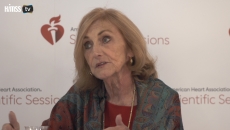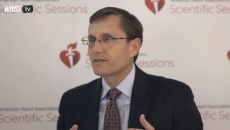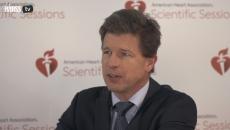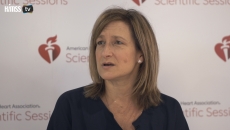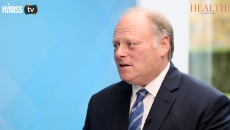Videos
Remote monitoring technologies are enabling patients to manage their healthcare from their homes, says Charles Parker, principal of Escentium Consulting.
James Hury, deputy director and chief innovation officer at the Translational Research Institute for Space Health, discusses how space health not only helps deep space travel but brings cutting-edge technologies down to Earth.
Dr. Dan Lowenstein, executive vice chancellor and provost at UCSF, says focusing on the health of humans leaving the planet pushes our current capabilities.
University of Pittsburgh Professor Lora Burke explains why encouraging health skills is increasingly difficult in today's landscape.
In our first episode of "When It Works," intracranial hematoma patient Danielle Collins and George Washington University Hospital's Dr. Walter Jean share how surgical theater helped Collins comprehend her condition.
Patrick Wayte, SVP of the American Heart Association's Center for Health Technology and Innovation, says the AHA is bringing clinicians, behaviorists and technologists into a single conversation.
The gulf between tech's vision and the clinical world's practical needs is wide; Duke School of Medicine Professor Dr. Eric Peterson says clinical evidence will be vital in closing that gap.
The last few years have been exciting for population health's digitization. Heather Provino, managing partner of The Scanlon Group, explains why.
Kathleen Warner, chief of emerging strategies and ventures at the AHA, details how the organization is guiding healthcare startups as they build credibility.
We must prepare our workforce for cultural change and learn to fail fast in our global digital transformation projects, says Hal Wolf, HIMSS president and CEO.
